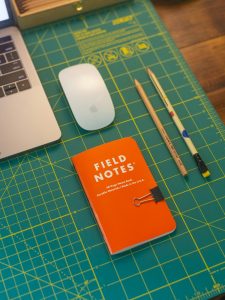
The AWS Certified Cloud Practitioner exam is designed to assess foundational knowledge of the Amazon Web Services (AWS) cloud platform. It’s often considered the entry point into cloud certifications, especially for those new to AWS or cloud computing in general. As you prepare for the exam, a common question many candidates have is: Can you use notes on the AWS Cloud Practitioner exam?
The simple answer is no—you are not allowed to use notes or reference materials during the AWS Cloud Practitioner exam, whether it’s taken online or at a physical testing center. AWS enforces strict guidelines to maintain the integrity and fairness of the certification process, and this includes prohibiting the use of external aids like notes, books, or electronic devices.

Understanding the Exam Format
Before diving into more details about the use of notes, it’s essential to understand the format of the AWS Cloud Practitioner exam. It consists of multiple-choice and multiple-response questions, and it covers four main areas:
1. Cloud Concepts: General knowledge of the cloud, including its advantages and business impacts.
2. AWS Core Services: Familiarity with key AWS services like EC2, S3, and RDS.
3. Security and Compliance: Understanding AWS security features, the shared responsibility model, and data protection.
4. Billing, Pricing, and Support: Knowledge about AWS pricing models, billing processes, and support options.
The exam is 90 minutes long, and the passing score is typically around 700 out of 1000 points. Since you are not permitted to use notes, you’ll need to rely on your understanding of these concepts during the test.
No Notes Allowed: Why AWS Prohibits It
AWS has strict rules around testing to ensure that every candidate is evaluated fairly and consistently. Allowing notes would create a disparity between candidates who use notes and those who don’t, leading to an unequal playing field. Moreover, the objective of the certification is to verify that you have a solid grasp of the core AWS concepts, not just the ability to refer to notes.
Here’s how AWS ensures the integrity of the exam:
– Online Proctoring: If you choose to take the exam online, you’ll be monitored by a live proctor via your webcam. You’ll be required to show your testing environment before starting the exam to ensure there are no study materials nearby.
– In-person Testing Centers: At physical test centers, candidates are required to store personal items, including notes, phones, and bags, in a locker before taking the exam.
These measures are put in place to ensure that no external resources are used to aid in answering the exam questions.
Preparing Without Notes: Tips for Success
Since you can’t use notes during the AWS Cloud Practitioner exam, thorough preparation is key to success. Here are some tips to help you feel confident when test day arrives:
1. Study AWS Whitepapers and Documentation: AWS provides official whitepapers and study materials that cover essential topics. These are excellent resources to understand the breadth of services AWS offers and how they fit together.
2. Use AWS Free Tier: Hands-on practice is one of the best ways to learn. AWS offers a free tier that allows you to use many of its services at no cost for a year, giving you practical experience to supplement your study.
3. Take Practice Exams: Many online platforms offer mock exams and practice questions. These simulate the real exam environment and help you identify areas that need more attention.
4. Join Study Groups or Communities: There are many online communities, forums, and study groups where candidates share tips, resources, and advice for passing the AWS Cloud Practitioner exam.
5. Leverage Online Courses: Platforms like Udemy, Coursera, and A Cloud Guru offer courses designed specifically for the AWS Cloud Practitioner exam. These courses break down complex topics into digestible lessons.
No, you cannot use notes on the AWS Cloud Practitioner exam, but with the right preparation strategy, you can confidently pass it without relying on external aids. By leveraging AWS’s own resources, practicing hands-on, and simulating exam conditions, you’ll be well-prepared for test day. Focus on understanding the core concepts, and you’ll be ready to tackle the exam successfully.









